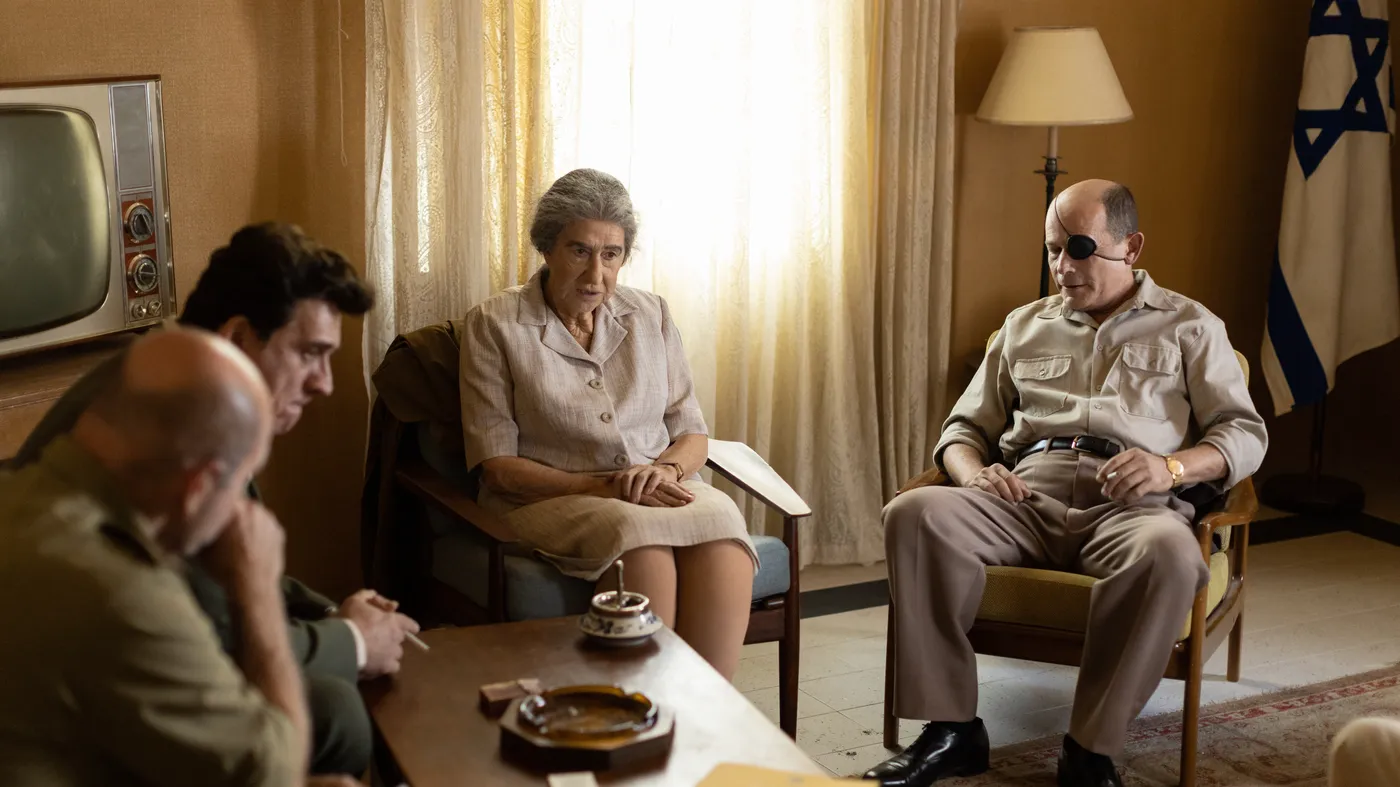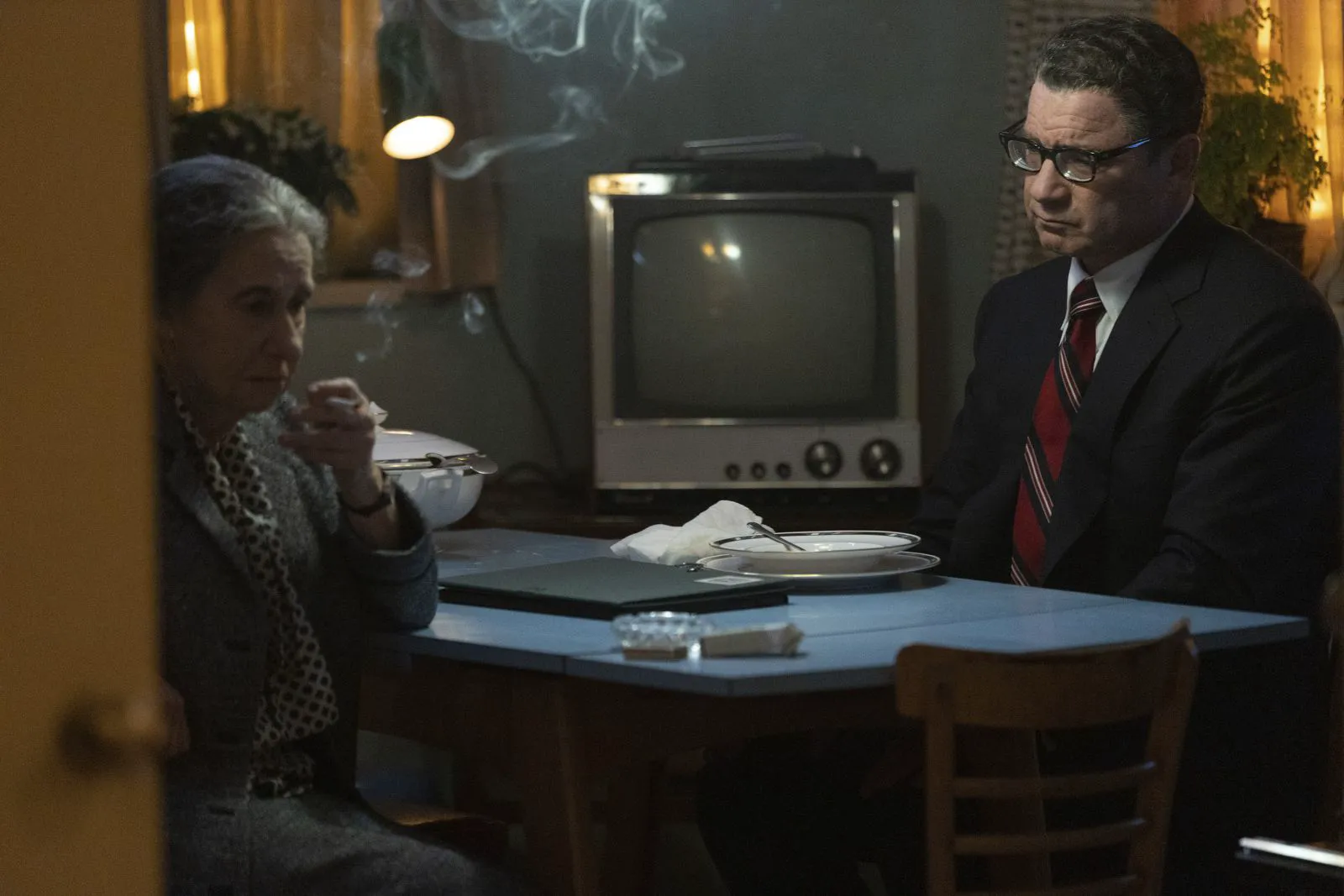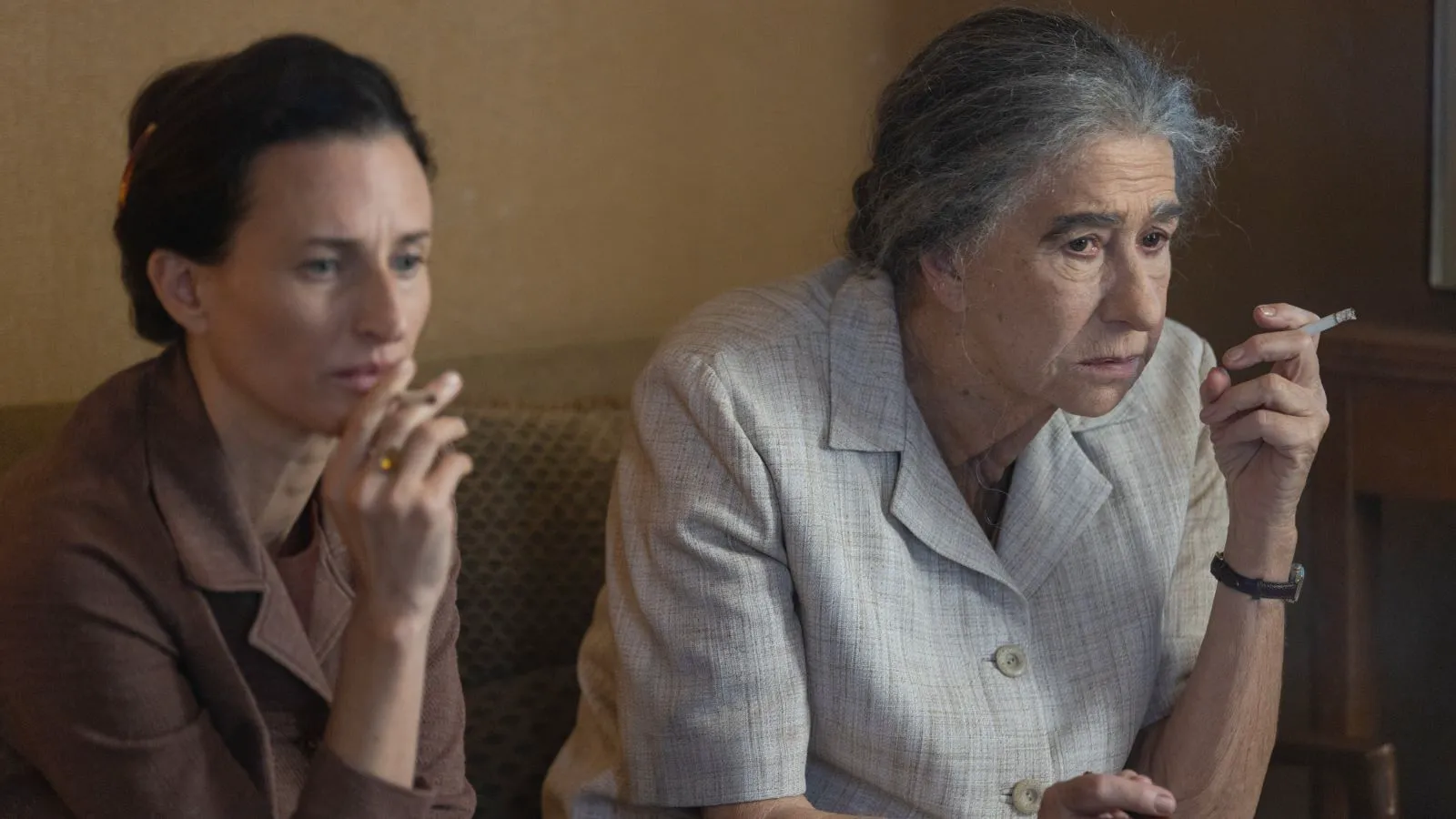In 1968, Israel emerged victorious from the Six-Day War with Arab nations, but tensions in the Middle East persisted. Egypt and Syria were determined to reclaim lost territories and launched an attack on their neighbor on October 6, 1973. Israel was caught off guard, as intelligence efforts yielded no results. Prime Minister Golda Meir (Helen Mirren), an elderly woman with health issues, urgently needed to decide how to defend the country with minimal losses. The nation’s political leader immediately convened a military council while simultaneously negotiating with U.S. Secretary of State Henry Kissinger (Liev Schreiber), hoping for arms supplies from allies.

Helen Mirren as Golda Meir in a still from “Golda”
The Making of Golda
Guy Nattiv, the director of this biopic about Israel’s first and only female Prime Minister to date, is an Academy Award winner for his short film “Skin” and the creator of dramas like “Strangers” and “The Flood”. Nicholas Martin (“Florence Foster Jenkins” and “Midsomer Murders”) penned the screenplay. For the role of one of the most significant figures in Jewish history, the director chose British actress Helen Mirren. The Oscar-winning actress has long and confidently portrayed women at the helm of state. Mirren has played the roles of Emperor Caligula’s wife Caesonia, King George III of Great Britain’s spouse Charlotte, Catherine the Great, Elizabeth I, and Elizabeth II. It is worth noting that the actress finds new nuances each time to portray the powerful.
The story of Israel’s fourth Prime Minister has been brought to the screen before. In 1982, Ingrid Bergman played the leader of the Jewish state. The role in Alan Gibson’s biographical drama “A Woman Called Golda” became the actress’s last. And in 2019, the documentary “Golda” by Sagi Bornstein, Udi Nir, and Shani Rozanes was released. The non-fiction project is based on an interview that the country’s leader gave to Israeli television a few months before her death.

Helen Mirren as Golda Meir in a still from “Golda”
A Nation Under Siege
The entire film takes place during the 19 tragic days of October 1973. In the worst-case scenario, Israel as a state could have ceased to exist. Defense Minister Moshe Dayan (Rami Heuberger), Chief of General Staff Dado Elazar (Lior Ashkenazi), Head of Military Intelligence Eli Zeira (Dvir Benedek), Assistant Minister of Defense Zvi Tzur (Rotem Keinan), and Air Force Commander Beni Peled (Ed Stoppard) argue about how to respond to the enemy’s attack. Meanwhile, the country is losing planes, tanks, and most importantly, people. Some military leaders look openly despondent, as if the generals were prepared for defeat. Only Golda does not allow emotions to take over and remains calm at all meetings, trying to make the right decisions in extreme circumstances. In private, the country’s leader deeply mourns the death of each citizen and overcomes physical pain, but at meetings, she seems not to think about the losses, only occasionally making notes in a notebook.
In 1973, Israel’s fourth Prime Minister is 75 years old. Golda has been battling cancer for several years and is undergoing grueling chemotherapy. The country’s leader struggles to avoid showing weakness in public. Helen Mirren plays two Goldas: one with a cold head listens to military advisors and has telephone conversations with Kissinger, the other lies alone on a large bed, cannot fall asleep for a long time, struggles to move around the room, and hears the cries of pain from Israeli soldiers. Doctors tell Meir that smoking and several cups of black coffee a day do not help with cancer, but the politician intends to remain herself until the very end. Golda tells her loyal assistant and only relative, Lou Kaddar (Camille Cottin), to kill her boss if the Egyptians enter Tel Aviv. Meir cannot accept the country’s defeat, although she imagines such a development.

Camille Cottin as Lou Kaddar in a still from “Golda”
A Dual Narrative
The film unfolds in two time periods. Viewers in the present follow the actions of Golda and the military leaders during the days of the enemy attack, and in the future, they see the sessions of the Agranat state commission, which, after the end of hostilities, was to assess Meir’s decisions. In 19 terrible days, the Israelis lost 2,656 people — more than in 1948 during the War of Independence. The result of the battles was a political and economic crisis, followed by the resignation of the government.
“Golda” is completely devoid of action. The director relies on strong acting and the tension created by tragic events. The main locations are cramped offices where the fate of the country is decided. The political thriller could easily have turned into a theatrical production or an engaging audio drama. Golda and the military ministers learn about the results on the battlefields by listening to intelligence reports and the desperate cries of soldiers on the front lines. Occasionally, the narrative is interspersed with newsreel footage, but the main battles remain off-screen. In the dryness of the story and the focus on the country’s leader, “Golda” is reminiscent of “Darkest Hour” with Gary Oldman. The carnage in Sinai and the Golan Heights is conveyed through sounds and horrifying loss figures.
Nattiv’s film is difficult to call a standard biopic, but the unhurried pace, conversations in smoky rooms, and the chronicled-monumental tone do not allow the film to be considered one of the year’s great successes. This film is made with respect for the fallen, but it is hardly capable of captivating viewers. “Golda” shows a Shakespearean tragedy about the unbearable burden of power and tries to pay tribute to an important figure in Israeli history. Perhaps, if someone else had been Prime Minister during the Yom Kippur War, today’s world would have new outlines. In the meantime, Nattiv reminds younger generations of the tragic pages of the past and perhaps gives Mirren the opportunity to receive another Oscar nomination.